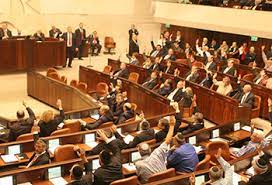US Democracy/Republic
Unlike the ancient Greek democracy, the US system is at its core, not a pure democracy, but a constitutional republic with democratic elections, as clearly stated in the U.S. Constitution: “The United States shall guarantee to every State in this Union a Republican form of Government.” This differs from the original ancient Greek democracy, which the American founders believed to be a corrupt form of government. There are fundamental differences between pure democracy and constitutional republic forms of government.
The Difference between a Democracy and a Republic
The key difference between a democracy and a republic lies in the limits placed on government by the law, which has implications for minority rights. Both forms of government use a representational system, where citizens vote to elect politicians to represent their interests and form the government.
In a republic, a constitution, or charter of rights, protects certain inalienable rights that cannot be taken away by the government, even if it has been elected by a majority of voters.
In a so-called pure democracy, the majority is not restrained in this way. It can impose its will on the minority. It also differs from a representative democracy in which constituents choose leaders to govern according to their interests.
The US is a democratic republic that guarantees fundamental rights and liberties and features an electoral system combining direct elections for legislators and indirect voting (through an electoral college) for the President.
Other Nations
Given that the US is a republic with democratic elections, Americans may not understand how it compares with other forms of government.
For example, unlike the United States, the United Kingdom has a constitutional monarchy that has democratic elections. Although the UK has a legislative system, its Parliament’s historical foundations are not entirely democratic. Whereas the House of Commons is an elected body, the House of Lords is hereditary, though its authority to originate legislation has been curtailed over the years. Yet, unlike Israel, its government is rarely delegitimized.
Some Muslim countries, like Malaysia, enshrine Islam as the national faith; citizens must be Muslim to be considered ethnic Malaysians. Even though they have constitutions and legislative bodies, certain rights and freedoms are subservient to Islamic law as applied by Sharia courts, and there is no separation between religion and state (which is seen as a purely western invention).

Israel
Israel is a parliamentary democracy, consisting of legislative, executive, and judicial branches. Its institutions are the Presidency, the Knesset (parliament), the Government (cabinet), and the Judiciary.
The system is based on the principle of separation of powers, with checks and balances, in which the executive branch (the government) is subject to the confidence of the legislative branch (the Knesset) and the law guarantees the independence of the judiciary.
The President in this system has just a few symbolic duties, with no political power. Defined by law, his duties are mostly ceremonial and formal, such as ceremonially opening the first session of a new Knesset; accepting the credentials of foreign envoys; signing treaties and laws adopted by the Knesset; appointing judges, the governor of the Bank of Israel and heads of Israel’s diplomatic missions abroad. He can pardon prisoners and commute sentences, on the advice of the minister of justice.
The President is elected once in seven years by a simple majority of the Knesset from among candidates, nominated based on their personal stature and contribution to the state.
The Israeli parliament, The Knesset is the legislative authority elected in a general election.
The Knesset, through its committees, conducts general debates on government policy and activity, as well as on legislation. Debates are conducted in Hebrew, but members may speak Arabic, as both are official languages; simultaneous translation is available.
Every citizen is eligible to vote for the Knesset from age 18 and to be elected to the Knesset from age 21. Knesset elections, for a tenure of four years, are general, national, direct, equal, secret, and proportional, with the entire country constituting a single electoral constituency. The Knesset may dissolve itself or be dissolved by the Prime Minister before the end of its term. Until a new Knesset is formally constituted following elections, full authority remains with the outgoing one.
Knesset elections are based on a vote for a party rather than for individuals, and the many political parties, which compete for election to the Knesset, reflect a wide range of outlooks and beliefs. Knesset seats are assigned in proportion to each party’s percentage of the total national vote.
The Government (cabinet of ministers) is the executive authority of the state, charged with administering internal and foreign affairs, including security matters. Its policy-making powers are very wide and it is authorized to take action on any issue, which is not delegated by law to another authority. Like the Knesset, the government usually serves for four years, but its tenure may be shortened if the Prime Minister is unable to continue in office due to death, resignation, or impeachment when the government appoints one of its members (who is a Knesset member) as acting Prime Minister.
In the case of a vote of no confidence, the government and the Prime Minister remain in their positions until a new government is formed. All the ministers must be Israeli citizens and residents of Israel; they need not be Knesset members, but a majority usually are. Ministers, with the approval of the Prime Minister and the government, may appoint a deputy minister in their ministry; all deputy ministers must be Knesset members.
To date, all governments have been based on coalitions of several parties, since no party has received enough Knesset seats to be able to form a government by itself.
The Judiciary – Israeli law guarantees the absolute independence of the judiciary. Judges are appointed by the President, upon recommendation of a special nominations committee, comprised of Supreme Court judges, members of the bar, and public figures. Judges’ appointments are for life, with a mandatory retirement age of 70.
Leave a Reply